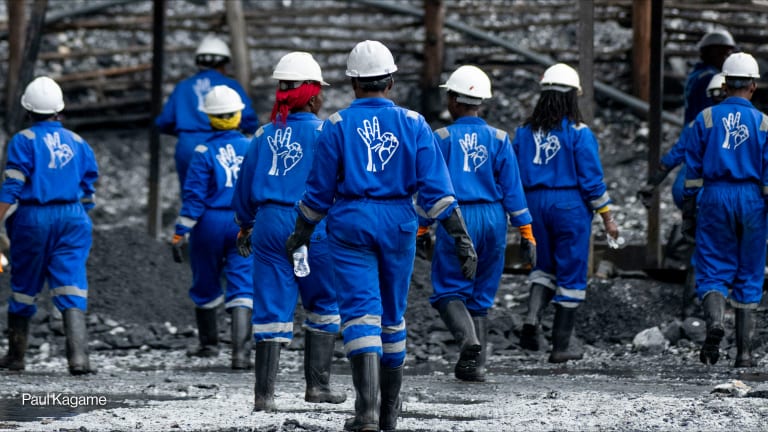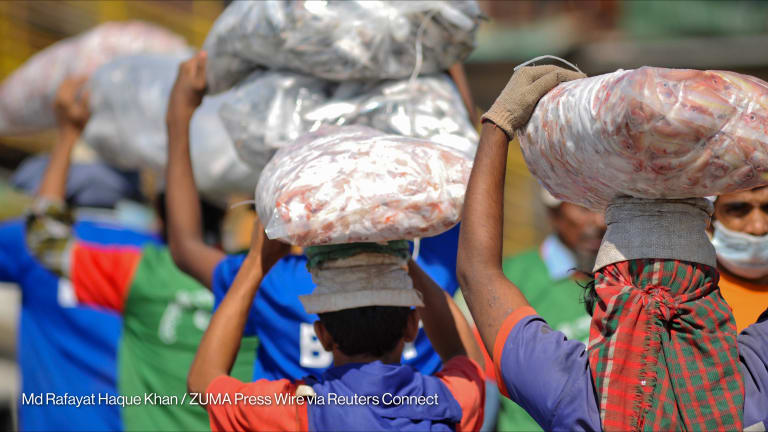
Since the outbreak of the COVID-19 crisis, reactions have ranged from fear and panic to actively coping with the changing reality. While the medical dangers are substantial, the full social and economic implications are still unknown.
Yet across Africa, it is clear that the spread of the coronavirus and social-distancing policies will have massive ramifications, with many officials and executives in various sectors calling to do everything we can to mitigate the effects of the threat.
How individuals are investing in solar energy for Africa
New ethical financing platforms say they have the answer for frustrated investors and for small, Africa-focused solar businesses — but some industry observers are skeptical.
One of the most notable examples is in the field of solar energy. Over the past few years, off-grid solar companies have been gaining momentum, providing safe, clean, and affordable energy solutions to tens of millions of people across the continent and preventing millions of tons of greenhouse gas emissions and indoor pollution caused by combustible fuels for lighting and cooking.
Some executives are concerned about the consequences of the COVID-19 crisis, warning that the sector is facing an unprecedented threat that could destroy companies and harm millions. In strategy terms, this is a typical “freeze” response.
Indeed, the coronavirus crisis is drastically changing our lives, creating a new reality in which the entire economy, including the solar sector, should find new paths of operation. This reality is saturated with threats and dangers.
But freezing and seeing the current period as a threat would be a mistake. In every business — especially those operating across multiple African countries — each day brings a series of threats and opportunities. If we choose to focus on the former, we find ourselves in constant survival mode, putting efforts into extinguishing fires instead of innovation and creativity.
We must have a fresh look at current events and capture the many opportunities that come our way. And we must do it today.
Time for rethinking
Every crisis brings with it countless opportunities. The current one is no different, and it presents great potential for the solar industry. If we focus on opportunities and the potential to innovate and influence, the entire sector will prosper and impact the lives of people even more than it did before. Here are five opportunities for change and innovation:
Supporting medical teams with solar
These days, the most important goal must be assisting medical teams on the continent, especially in remote areas. Hundreds of millions of people living in those communities rely on underdeveloped health services, with medical teams lacking basic diagnostic tools and equipment. Across Africa, health care sectors are in dire need of technologies and tailor-made solutions.
Solar companies are in a key position to assist those teams, with vast activity in thousands of remote villages in sub-Saharan Africa. The infrastructure of these companies provides them with the best starting point for initiating new projects. Just like home solar energy systems that allow millions to enjoy affordable and sustainable home electricity, solutions for the needs of medical teams can be developed and tailored for remote health workers.
The unprecedented importance of home electricity
COVID-19 is not expected to go away any time soon, and the coming months and years are expected to bring a major social shift from the sharing economy that we used to know to an “isolation economy.” Without a vaccine or cure for the virus, people are likely to spend much more time at home, making home electricity more important than ever.
But African countries will now leapfrog over the sharing economy to the stay-at-home one at a faster rate. Millions of people who previously used crowded kiosks to charge their cellphones or watch the news each day will change their habits, and staying at home without electricity will prevent them from listening to the radio or staying in touch with loved ones. And for children living in homes without electricity, remote education is not even an option.
This new reality will make home electricity more urgent and important than ever, and off-grid companies will have a great opportunity to expand both their operations and impact.
Expensive grid projects fading away
With many investors affected by the global economic crisis, donations and investments are likely to be cut. This might have a devastating effect on large grid projects for massive infrastructure that cost tens of millions of dollars.
Off-grid companies will be able to fill in the gap quickly and affordably with their on-the-ground operations and solar energy systems to claim a massive chunk of the market.
Domestic production gaining importance
If the health hazards and social distancing were not enough, the coronavirus crisis has also led to a significant decline in world trade and cross-continental shipments, highlighting a weak point of the hyperglobal economic era. One of the major changes expected is a perceptual change that will make countries and companies less reliant on product imports and more focused on domestic production.
For solar companies, this is a tremendous opportunity. Local production and assembly of solar energy systems could create tens of thousands of new jobs, shorten processes, and allow local companies to grow and prosper.
Utilizing solar power for food security
The food sector is also expected to change, with countries already investing resources to increase domestic food supplies for food security. In Africa, where only a negligible percentage of all agricultural land is irrigated regularly, solar companies can play a key role in providing solar irrigation systems, which will drastically increase crops and efficiency.
The new status quo
All crises change the status quo. These changes include quite a few threats and dangers but also opportunities for innovation and creativity. If solar companies choose to treat the coronavirus crisis only as a threat, their response will follow accordingly.
But if we choose to fight instead of freeze, this crisis might be the biggest opportunity of the decade. Defensive moves will be replaced by innovation, and survival efforts will be replaced by business expansion, investment in new markets, and creativity.
This is the only way that the solar sector can do more than just survive, but also thrive, while impacting the lives of millions more than before, preventing millions of tons of greenhouse gas emissions, and leading Africa into a cleaner, more sustainable, and inclusive future.
Search for articles
Most Read
- 1
- 2
- 3
- 4
- 5








